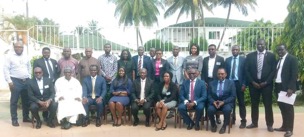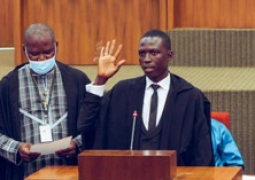
Addressing the gathering, Dr. Emmanuel Owusu-Afriyie, director, research and macro-economic management department at WAIFEM, said the history of monetary policy has been shaped by a constant influence between monetary theory and practice with close mutual reinforcement.
He informed that the monetary policy has some features which include persistence, whilst others tend to be transient. He said in recent times the overarching objective of monetary policy has been that of long term price stability that finds expression in the monetary policy frameworks of all major central banks.
However, he pointed out various monetary anchors such as money growth targets, exchange rate and inflation targeting.
In addition, he said in the initial periods, money growth targets were considered as appropriate monetary anchors for the purpose of implementing monetary policy, noting that the prevailing argument was based on the quantity theory of money which assumed a constant velocity of circulation of money.
"If monetary authorities were able to control the pace of growth of money supply, it would suggest that they would be able to put brakes on the rate of inflation in the economy," he added.
Dr. Paul Mendy, second deputy governor of Central Bank of The Gambia (CBG) said monetary policy deals with the discretionary control of money supply by the monetarist in order to achieve the desired micro-economic policy objectives such as price stability, full employment, liquidity and stable economic growth.
According to him, maintaining stable prices on a sustained basis is a crucial pre-condition for increasing economic welfare and the growth potential of an economy. He continued that the natural role of monetary policy in the economy is to maintain price stability.
Moreover, he stated that the objectives of monetary policy can also be the attainment of internal and external balance of payments. "By the use of monetary policy tools, the monetary authority of a country can either control money supply or interest rate to ensure price stability and general trust in the currency."
Additionally, he revealed that two sets of the monetary policy instrument are discernible. He said the first set includes quantitative instruments such as Policy Rate (PR), Open Market Operation (OMO) and Variation in the Reserve Ratios (VRR). "The second set is made up of Qualitative Instruments or Selective Tools such as Fixing Margin Requirements."
Dr. Mendy further reiterated that in the short run, monetary policy influences inflation and the economy-wide demand for goods and services and, therefore demand for the employees who produce those goods and services, primarily through its influence on the financial conditions facing households and firms.




